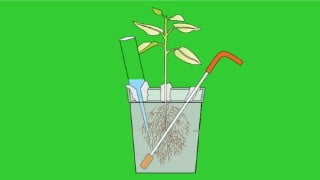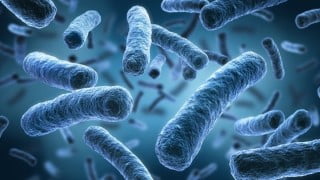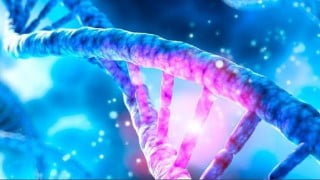Biology – Mineral Nutrition | 13 Lessons | 2hr 13min.
Learn about the mineral requirements of plants and how they absorb essential elements from air, water, and soil. Discover the importance of macronutrients and micronutrients for plant growth and development. Explore deficiency symptoms and the role of nitrogen fixation. Perfect for biology enthusiasts, beginners, and students preparing for exams.
What you’ll learn
- Methods to Study the Mineral Requirements of Plants
- Essential Mineral Elements
- Mechanism of Absorption of Elements
- Translocation of Solutes
- Soil as Reservoir of Essential Elements
- Metabolism of Nitrogen
Description
Plants obtain their inorganic nutrients from air, water and soil. Plants absorb a wide variety of mineral elements. Not all the mineral elements that they absorb are required by plants. Out of the more than 105 elements discovered so far, less than 21 are essential and beneficial for normal plant growth and development. The elements required in large quantities are called macronutrients while those required in less quantities or in trace are termed as micronutrients. These elements are either essential constituents of proteins, carbohydrates, fats, nucleic acid etc.,and/or take part in various metabolic processes. Deficiency of each of these essential elements may lead to symptoms called deficiency symptoms. Chlorosis,
necrosis, stunted growth, impaired cell division, etc., are some prominent deficiency symptoms. Plants absorb minerals through roots by either passive or active processes. They are carried to all parts of the organism through xylem along with water transport.
Nitrogen is very essential for the sustenance of life. Plants cannot use atmospheric nitrogen directly. But some of the plants in association with N2 -fixing bacteria, especially roots of legumes, can fix this atmospheric nitrogen into biologically usable forms. Nitrogen fixation requires a strong reducing agent and energy in the form of ATP. N2-fixation is accomplished with the help of nitrogen- fixing microbes, mainly Rhizobium. The enzyme nitrogenase which plays an
important role in biological N2 fixation is very sensitive to oxygen. Most of the processes take place in anaerobic environment. The energy, ATP, required is provided by the respiration of the host cells. Ammonia produced following N2 fixation is incorporated into amino acids as the amino group.
EXERCISES
1. ‘All elements that are present in a plant need not be essential to its survival’. Comment.
2. Why is purification of water and nutrient salts so important in studies involving mineral nutrition using hydroponics?
3. Explain with examples: macronutrients, micronutrients, beneficial nutrients, toxic elements and essential elements.
4. Name at least five different deficiency symptoms in plants. Describe them and correlate them with the concerned mineral deficiency.
5. If a plant shows a symptom which could develop due to deficiency of more than one nutrient, how would you find out experimentally, the real deficient mineral element?
6. Why is that in certain plants deficiency symptoms appear first in younger parts of the plant while in others they do so in mature organs?
7. How are the minerals absorbed by the plants?
8. What are the conditions necessary for fixation of atmospheric nitrogen by Rhizobium. What is their role in N2 -fixation?
9. What are the steps involved in formation of a root nodule?
10. Which of the following statements are true? If false, correct them:
(a) Boron deficiency leads to stout axis.
(b) Every mineral element that is present in a cell is needed by the cell.
(c) Nitrogen as a nutrient element, is highly immobile in the plants.
(d) It is very easy to establish the essentiality of micronutrients because they are required only in trace quantities.
Who this course is for:
- Biology enthusiast.
- Beginners in Biology.
- NEET & MHT-CET aspirants
- Those preparing for board and competitive exams State Board, CBSE, ICSE , IGCSE, MHT-CET & NEET
User Reviews
Be the first to review “Biology – Mineral Nutrition | 13 Lessons | 2hr 13min.”
You must be logged in to post a review.







There are no reviews yet.